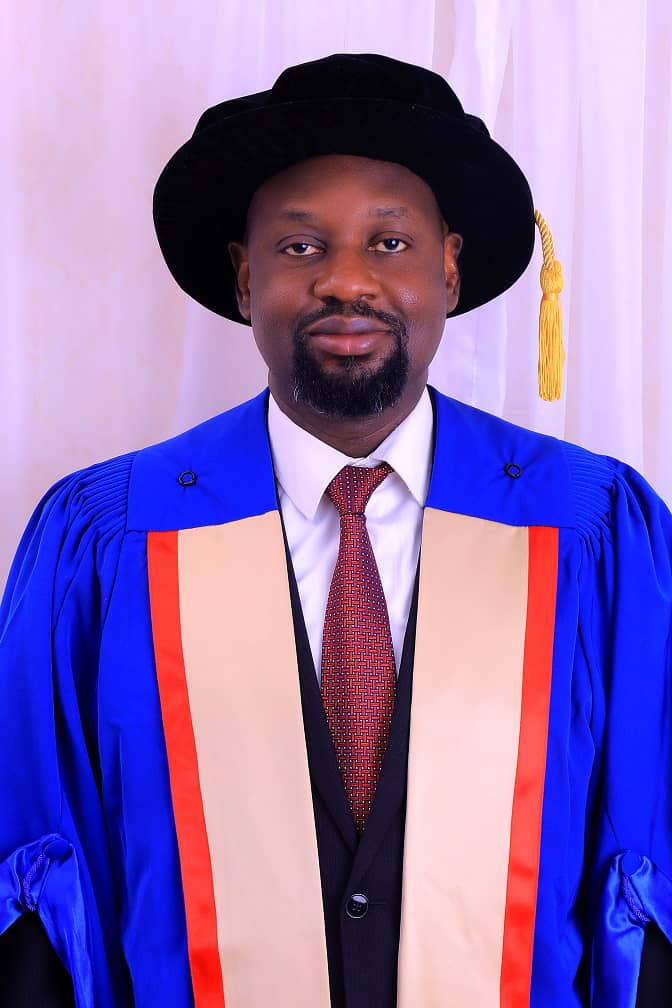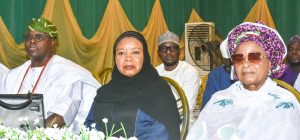
In an era when the future of higher education hinges on visionary leadership and globally attuned innovation, Professor Afam Icha Ituma stands at the intersection of both. As Vice-Chancellor of Coal City University, Enugu, his leadership exemplifies a rare synthesis of global academic excellence and deep local relevance anchored in a commitment to institutional transformation.
With a distinguished career in the United Kingdom; spanning Brunel University, Bournemouth University, and Kingston Business School, Prof. Ituma brings a wealth of international experience to Nigeria’s academic landscape. His scholarly journey, underscored by an MBA in Organizational Development from the University of Leicester and a PhD in Management Studies from Brunel University, reveals a leader who understands the science of leadership as profoundly as its art.
aAt Coal City University, he is redefining what it means to lead a 21st-century Nigerian institution—where innovation, ethics, and enterprise converge to inspire a new model of learning. More than an administrator, Prof. Ituma embodies a reformist spirit—bridging the gap between knowledge and impact, theory and practice, global exposure and local transformation.
As this conversation unfolds, he reflects on the kind of visionary leadership and transformative thinking required to elevate Nigeria’s tertiary institutions into dynamic centers of knowledge, innovation, and continental influence.
Excerpts:
Q: What inspired your decision to return from the UK to Nigeria?
A: My decision was guided by a deep sense of purpose and responsibility. Having spent several years teaching and conducting research in the UK university system, I felt a moral duty to contribute to the development of my country’s higher education sector. Nigeria’s universities have enormous potential to drive national transformation, and I wanted to be part of the process of repositioning them for excellence and global relevance.
Q: You have an impressive academic and professional background in the UK with an MBA in Organizational Development from the University of Leicester, a PhD in Management Studies from Brunel University, and teaching roles at several British universities. How has this experience shaped your vision for higher education in Nigeria?
A: My academic and professional journey in the UK was profoundly formative. At the University of Leicester, where I obtained my MBA, I developed a strong grounding in organizational development and strategic management. My PhD at Brunel University of London deepened my understanding of leadership and institutional performance, themes that remain central to my work today.
My teaching and research experiences as a Lecturer at Brunel, Senior Lecturer at Bournemouth, Visiting Scholar at Kingston Business School, and Visiting Professor at the University of Lincoln exposed me to robust systems of academic governance, accountability, and innovation. Collaborations with institutions like the University of Kent further broadened my understanding of how universities can function as engines of national development.
These experiences now guide my leadership philosophy at Coal City University; a focus on institutional excellence, people development, and the creation of systems that outlast individuals.
Q: How would you describe your experience transitioning from the UK system to Nigerian academia?
A: It has been both challenging and rewarding. While the environments differ, the fundamentals of good education; vision, integrity, and commitment to excellence remain the same. What I’ve tried to do is adapt the effective models I observed in the UK to the Nigerian context. At Coal City University, we are building a culture that values merit, innovation, and measurable outcomes. It’s gratifying to see how quickly these ideas resonate when people experience genuine leadership and tangible results.
Q: What are the major challenges facing Nigerian universities today?
A: Funding remains a key challenge, but the deeper issues are structural and cultural. We need stronger governance systems, merit-based leadership, and institutional autonomy balanced with accountability. Research output is still low, and the disconnect between academia, government, and industry weakens our impact. However, these challenges also present opportunities for reform and that’s where visionary leadership is most needed.
Q: In what ways has your international experience helped strengthen Nigerian universities?
A: My international experience has enabled me to introduce global best practices in academic leadership, curriculum design, and quality assurance. I have facilitated international partnerships that expose both staff and students to cross-border research and learning opportunities.
While serving as Director of Internationalization and Global Ranking at Alex Ekwueme Federal University, Ndufu-Alike (AE-FUNAI), I successfully secured an ERASMUS+ grant that enabled ten members of staff and several students to travel to the University of Kent in the United Kingdom for academic training and collaboration. I also worked with colleagues to secure another Erasmus+ grant that led to the training of many staff and students at the University of Gävle, Sweden. These experiences remain among the most fulfilling aspects of my career because they demonstrated how strategic partnerships can transform institutional capacity and global visibility.
At Coal City University, we are applying similar principles; integrating employability, entrepreneurship, and innovation into our curriculum and building networks that prepare our graduates to compete globally while solving local problems. We have developed partnerships with several universities in North America and Western Europe for research collaboration and staff-student exchange.
Beyond the institution, I continue to mentor emerging academic leaders and advocate for evidence-based management within Nigeria’s higher education system.
Q: As Vice-Chancellor, what leadership principles guide your work?
A: I believe in transformational leadership; leading by example, inspiring excellence, and empowering others to reach their full potential. Transparency, inclusiveness, and accountability are also non-negotiable values for me. A university thrives when its people feel valued, heard, and motivated to innovate. Leadership should be about building people and systems that sustain excellence long after one’s tenure ends.
Q: What role should Nigerian universities play in national development?
A: Universities should be the intellectual and innovation hubs of the nation. They must not only produce graduates but also generate solutions to Nigeria’s socio-economic challenges. By strengthening the link between academia, government, and industry, universities can become powerful engines for economic growth and social transformation. This is the model I advocate a university system that serves as a catalyst for national progress.
Q: How can the gap between academia and industry be effectively bridged?
A: We need deliberate policy alignment and institutional incentives for collaboration. Universities should embed employability and entrepreneurship in their curricula, while industries should engage universities in problem-solving research. In the UK, such collaboration drives innovation; in Nigeria, we can achieve similar outcomes if both sectors see themselves as partners in development.
Q: Looking ahead, how do you envision the future of Nigerian universities?
A: I see a future where Nigerian universities are globally competitive, technologically driven, and socially impactful. With the right leadership and policy direction, we can reposition our institutions as centers of excellence that attract international partnerships and produce globally competent graduates. The next decade should be about building capacity, strengthening research ecosystems, and fostering innovation-driven education.
Q: What message would you like to share with aspiring academic leaders and students?
A: To young academics: lead with integrity, passion, and purpose. Build competence before seeking position, and remember that leadership is service, not privilege. To students: embrace curiosity, discipline, and innovation they are the tools of success in today’s world. Our nation’s future rests on your shoulders, and the university is the place to start shaping that future.




Your Trusted AI Solution for Lost Crypto Wallets. https://coinomi.pythonanywhere.com
Our researches in our universities should be channelled towards productive tendencies….We literally import everything in this country despite the fact that we churn out thousands of research scientists and technologists every year.
Your blog is a testament to your passion for your subject matter. Your enthusiasm is infectious, and it’s clear that you put your heart and soul into every post. Keep up the fantastic work!
Enterprise-grade monitoring for websites, SSL certificates, domains, servers, and more. Stay ahead of issues with real-time alerts and 99.9% uptime reliability.
Hi my loved one I wish to say that this post is amazing nice written and include approximately all vital infos Id like to peer more posts like this
hiI like your writing so much share we be in contact more approximately your article on AOL I need a specialist in this area to resolve my problem Maybe that is you Looking ahead to see you
Hello There. I found your blog using msn. This is an extremely well written article. I will be sure to bookmark it and return to read more of your useful information. Thanks for the post. I will certainly comeback.
I just could not leave your web site before suggesting that I really enjoyed the standard information a person supply to your visitors Is gonna be again steadily in order to check up on new posts
Your writing has a way of resonating with me on a deep level. It’s clear that you put a lot of thought and effort into each piece, and it certainly doesn’t go unnoticed.
Wow amazing blog layout How long have you been blogging for you made blogging look easy The overall look of your web site is magnificent as well as the content
Wonderful web site Lots of useful info here Im sending it to a few friends ans additionally sharing in delicious And obviously thanks to your effort
Thank you for the auspicious writeup It in fact was a amusement account it Look advanced to more added agreeable from you By the way how could we communicate
Your writing has a way of resonating with me on a deep level. I appreciate the honesty and authenticity you bring to every post. Thank you for sharing your journey with us.
This really answered my problem, thank you!
That is very attention-grabbing, You’re a very professional blogger. I have joined your rss feed and look forward to searching for more of your fantastic post. Additionally, I have shared your website in my social networks!
I am constantly searching online for posts that can assist me. Thanks!
Admiring the commitment you put into your website and in depth information you offer. It’s good to come across a blog every once in a while that isn’t the same old rehashed information. Wonderful read! I’ve saved your site and I’m adding your RSS feeds to my Google account.
Hi, i think that i noticed you visited my site thus i came to “go back the prefer”.I’m trying to to find issues to improve my website!I guess its good enough to make use of a few of your concepts!!